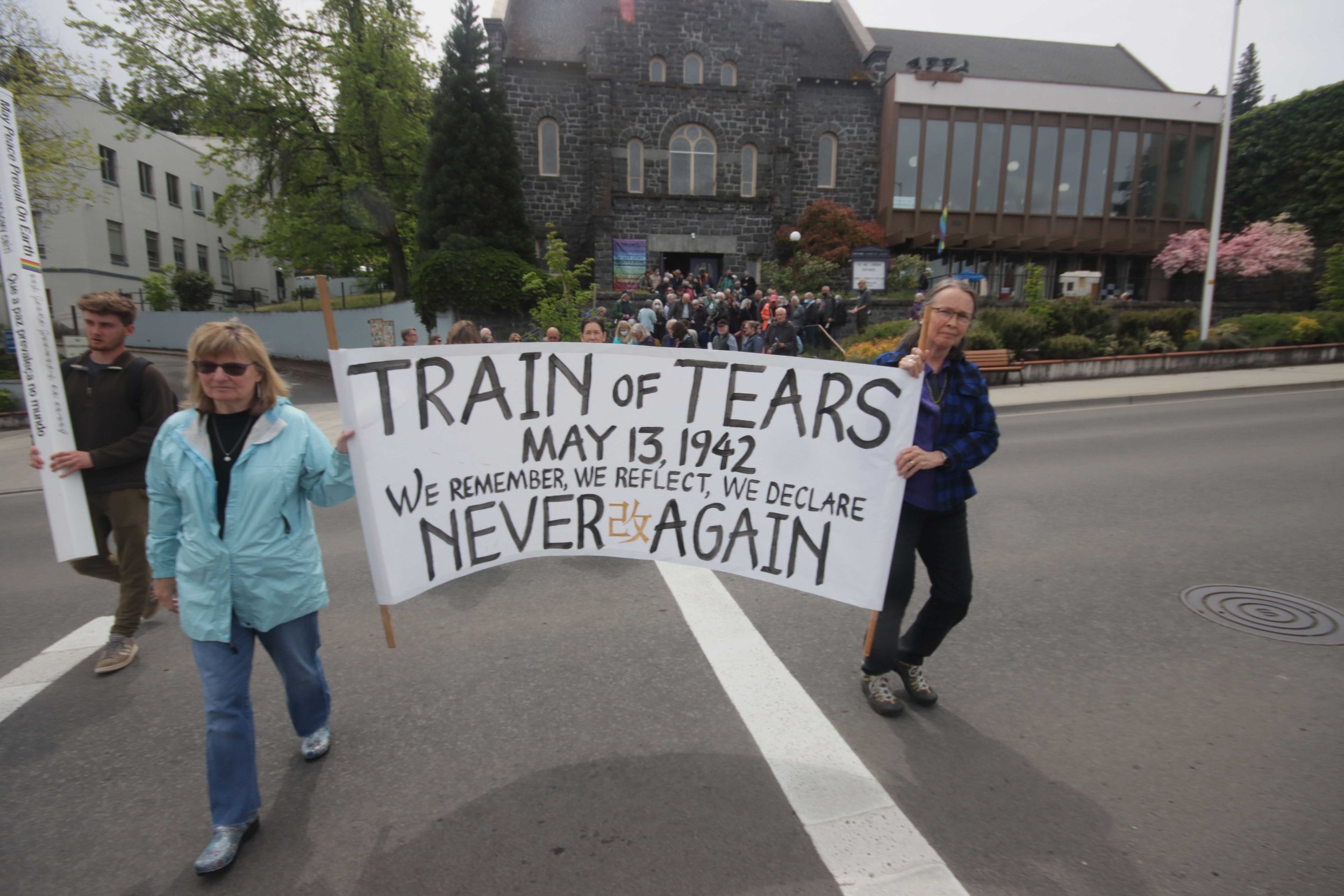Train of Tears
She had just shared a story of harm she’d experienced from someone in conference ministry. Part of me wanted to defend myself, to defend my profession, to defend my predecessor, to move forward with the tasks at hand. Instead, I took a deep breath, looked her in the eye, and said, “I am so sorry that someone in my position did that to you.” Only then, after a pause to let the apology sink in, after holding the pain of that experience, after a moment for forgiveness, could we continue. Only then could I say, “Let’s talk about how I intend to act going forward.”
On May 13th, I thought about that experience as I sat in the sanctuary at Riverside UCC in Hood River, Oregon. It was the 80th anniversary of the internment of our neighbors of Japanese ancestry. In researching the history of the terrible harm perpetrated by our government in 1942, the people of Riverside UCC have found no record of their church speaking out against the internment. There is no evidence they tried to help their neighbors when they were loaded onto trains, and no evidence they did anything to welcome those few who returned, or to interrupt the hatred that spewed from shop windows and newspaper articles telling their Japanese neighbors to stay away.
In the face of that story, the members of Riverside UCC chose to take a deep breath, look their neighbors in the eye, and say, “We are sorry.”
As Riverside debated what their public apology should say, they confronted all the same impulses I experienced that day when I was offered a painful story. There were some who wanted to defend themselves, pointing out that they are good people and had nothing to do with the harm that was done in the past. There were those who wanted to defend the institution, pointing out that Riverside UCC has done lots of good in Hood River. And, of course, some wanted to defend their members who lived in 1942 and whose actions seem inscrutable – we don’t know what was in their heads, and we don’t know if they took actions that weren’t reported.
But, in the end, the only thing to do was to take a breath, and say, “I’m sorry someone in my position did that to you.” They had to hold that pain, let the apology sink in, accept any forgiveness that was offered, and then – only then – could they look to what comes next.
Across the conference, and across the nation, people are reckoning with old wounds. We are confronting the actions of our ancestors, and wondering how we can repair the harm that was done. In Hood River, at the service commemorating the 80th anniversary of the internment, the Right Rev. Diana Akiyama, Episcopal Bishop, spoke to the members of Riverside. In her remarks, she reminded us that trauma, such as that suffered by her father who was interred from Hood River, can be passed down genetically. She reminded us that healing also is transferable to our children through our DNA. And she sandwiched those reminders between words of gratitude for the members of Riverside, because holding the truth and offering apology is a first step toward healing.
On this Memorial Day, may you honor your ancestors by being willing to take the first step in repairing their mistakes. When confronted with painful stories, you may be tempted to defend yourself, to defend your institutions, or to defend your ancestors. Instead, take a deep breath, and say, “I’m sorry someone in my position did that to you.” As Bishop Akiyama reminded us, this is the first step toward healing.
As always, thank you for being the church for this time and this place, a church that can bring healing today from wounds caused in the past, if only we’re willing to first tell the truth and offer apology.
Blessings,
Tyler

